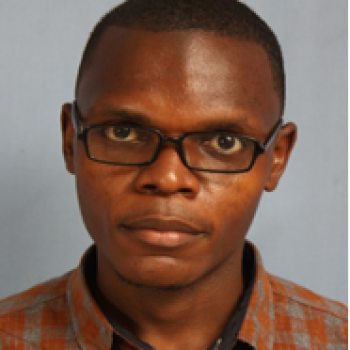Meet Kobia’s research team
Kobia’s research team is part of GitakaLab at Mount Kenya University, department of research and innovation.
Project details:
Because placental malaria is not detectable by conventional means like analysis of maternal peripheral blood by microscopy and is only diagnosable after birth through histological placenta examination, it is hard to treat, especially where the mother is affected by asymptomatic malaria in pregnancy. Thus, effective diagnostics and adjunctive interventions that may improve pregnancy outcomes during placental malaria are urgently needed. Studies using mouse models of placental malaria indicate the presence of a fetal–maternal innate immune response ‘conflict’ at the placental fetal–maternal interface. In this ‘conflict’, the fetus is thought to respond to the adverse impact of maternal pro-inflammatory immune response to placental malaria by upregulating its own innate immune response on the fetal side of the fetal–maternal interface, which has been reported to improve pregnancy outcomes during placental malaria. However, similar counteractivity between maternal immune responses to placental malaria and defensive immune responses by the fetus at the placenta fetal–maternal interface has not been observed in human placental malaria. In our study, we are using bio-banked human placental tissues from donors living in a malaria-endemic region of Kenya to investigate whether fetal–maternal innate immune ‘conflict’ occurs in response to human placental malaria and if it can be targeted therapeutically for better pregnancy outcomes. Analysis of the data underlying our placental biobank indicate that when compared with controls without known history of malaria during pregnancy, cases of malaria infection during pregnancy have lower birthweight, lower placental weight, and lower birthweight–placental
weight ratio, indicating that malaria in pregnancy caused poorer pregnancy outcomes and suggesting the presence of placental malaria. Using histological analysis for the presence of placental malaria (indicated by presence of infected
erythrocytes in the placental intervillous spaces and hemozoin deposition in
the placenta) we have examined the placental biobank samples and identified placental malaria positive and placental malaria negative samples for downstream characterization.
Our preliminary findings indicate that human placental malaria is associated
with an upregulation of TLR4 on the maternal side of the placenta, which is
accompanied by strong TLR4 (but not TLR9) upregulation on the fetal side,
suggesting that the fetal side of the placenta mounts an innate counter
response to placental malaria on the maternal side. Moreover, using
immunohistochemical analysis, we have observed that placental malaria might
drive oxidative damage as revealed by a marked increase in the levels of the
DNA oxidative damage marker, 8-Oxo-7,8-dihydro-2'-deoxyguanosine, in placental malaria positive samples when compared with placental malaria-free controls. We are further investigating the mechanisms by which these observations affect placental malaria outcomes as well as their implications for placental malaria diagnosis and treatment.
This project (TMA2019CDF-2736) has received funding from the EDCTP2 programme supported by the European Union and Novartis Global Health Basel Switzerland’.

Samuel Chenge, MSc student
Chenge W. Samuel is a postgraduate student pursuing a MSc. degree in Medical Microbiology at Jomo Kenyatta University of Agriculture and Technology (JKUAT). Has an undergraduate background in Biochemistry and Molecular Biology with a strong interest in diagnostic medical research on Tropical and Infectious Diseases caused by viruses and parasites, and viral associated tumorigenesis. He is currently working on a placental health research study on Placental Malaria at a cellular, immunological and molecular level. Other than clinical research and laboratory work, Samuel has entrepreneurial interests in pharmaceutical and furniture designing industries, coupled with being passionate in what he does, he enjoys watching soccer, nature walks and reading novels at an appropriate free time.

Harrison Ngure, MSc student
Harrison Ngure is pursuing a Master’s degree in Biotechnology at Mount Kenya university. He has an academic background in BED Science (Biology and Mathematics). His research interests are in development of diagnostics and therapeutic intervention on infectious diseases and cancer using a combined in silico and molecular approach. He is currently working on placental health and more specifically on placental torch infections. Beyond work and Lab, Harrison is an entrepreneur, IT expert, and local tourist.
Publications:
·
Kobia,
F. M.*, Maiti, K., Obimbo, M. M., Smith, R., & Gitaka, J. (2022).
Potential pharmacologic interventions targeting TLR signaling in placental
malaria. In Trends in Parasitology (Vol. 38, Issue 7, pp. 513–524). Elsevier
Ltd. https://doi.org/10.1016/j.pt.2022.04.002
·
Bernard N. Kanoi*, Michael Maina, Clement
Likhovole, Francis M. Kobia,
Jesse Gitaka. (2022). Malaria vaccine approaches leveraging technologies
optimized in the COVID-19 era. Frontiers in Tropical Diseases. In press.
·
Kobia
FM, Preusse K, Dai Q, Weaver N, Hass MR, Chaturvedi P, et al. Notch
dimerization and gene dosage are important for normal heart development,
intestinal stem cell maintenance, and splenic marginal zone B-cell homeostasis
during mite infestation. PLoS Biol. 2020;18(10).
·
Kobia
F, Gitaka J. COVID-19: Are Africa’s diagnostic challenges blunting
response effectiveness? AAS Open Res. 2020 Apr 17;3:4.
·
Tognon E, Kobia
F, Busi I, Fumagalli A, De Masi
F, Vaccari T. Control of lysosomal biogenesis and Notch-dependent tissue
patterning by components of the TFEB-V-ATPase axis in Drosophila melanogaster.
Autophagy. 2016;12(3).
·
Kobia
F, Duchi S, Deflorian G, Vaccari
T. Pharmacologic inhibition of vacuolar H+ ATPase reduces physiologic and
oncogenic Notch signaling. Mol Oncol. 2014;8(2).
·
Kobia
F, Gitaka J, Makokha F, Kamita M,
Kibera J, Mwenda C, et al. The state of cancer in Meru, Kenya: a retrospective
study. AAS Open Res. 2019 Dec 3;2:167.
·
Kobia
F, Luis C, Carminati F,
Andronache A, Ricci F, Mattioli M, Wade M, and Vaccari T. A screen of the human
druggable genome for novel modulators of Notch trafficking. 2022. *Research
manuscript in preparation.
·
Samuel C, Harrison N, Bernard K, and Kobia FM*. Placental
pathologies: from underlying biological pathways to diagnostics and treatments.
2022. In submission.



